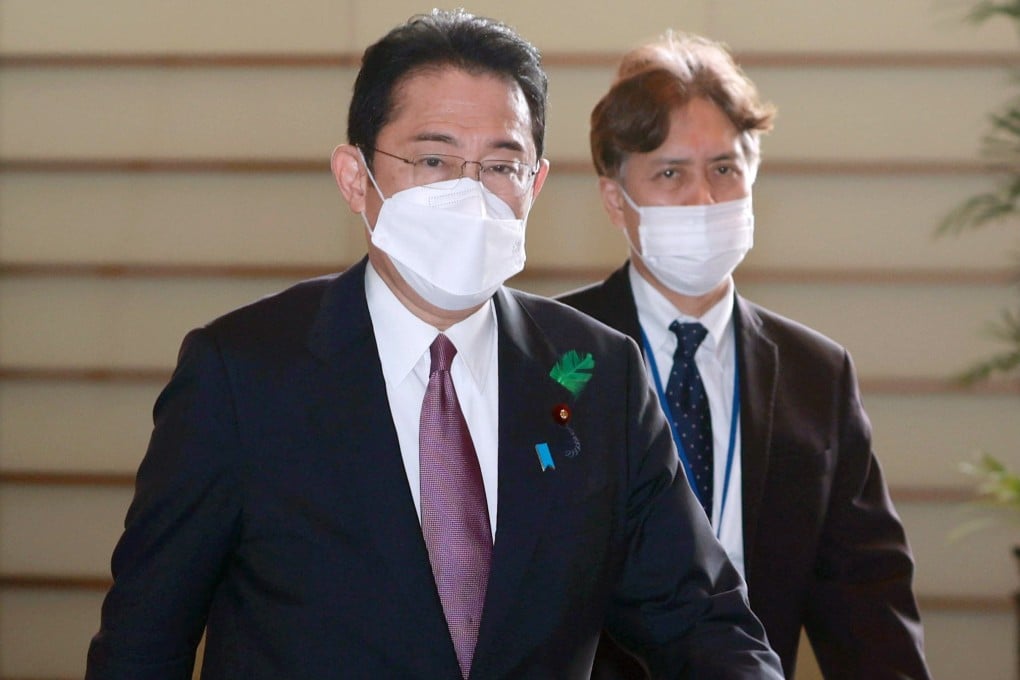Advertisement
Japan PM Kishida’s aide sacked over ‘hate’ to see LGBT couple comments
- Masayoshi Arai, executive secretary to the prime minister, also said that if same-sex marriage is introduced in Japan it would ‘change the way society is’
- Kisihida said the remarks made by Arai, who later apologised, are ‘outrageous’
Reading Time:2 minutes
Why you can trust SCMP
2

Japanese Prime Minister Fumio Kishida said on Saturday he has sacked a close aide after discriminatory remarks he recently made against sexual minorities came to light.
Masayoshi Arai, an elite bureaucrat from the ministry of economy, trade and industry, said during an off-the-record conversation with reporters at the prime minister’s office on Friday that he would “not want to live next door” to an LGBT couple and that he does “not even want to look at them.”
Kishida, who has recently struck a cautious note about legally recognising same-sex marriage, told reporters earlier on Saturday that the comments made by Arai “cannot but force” the Cabinet to consider his future.
Advertisement
“His comments are outrageous and completely incompatible with the administration’s policies,” he said in remarks aired by public broadcaster NHK.
Arai also said that if same-sex marriage is introduced in Japan, it would “change the way society is” and that “there are quite a few people who would abandon this country.”
Advertisement
Advertisement
Select Voice
Select Speed
1.00x